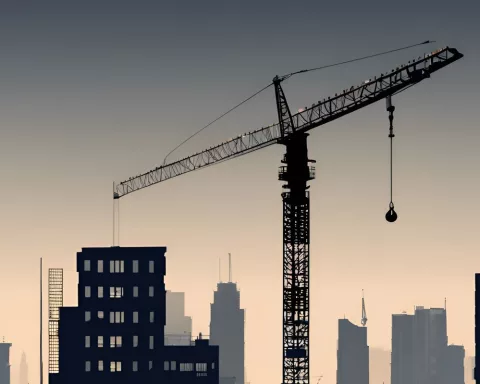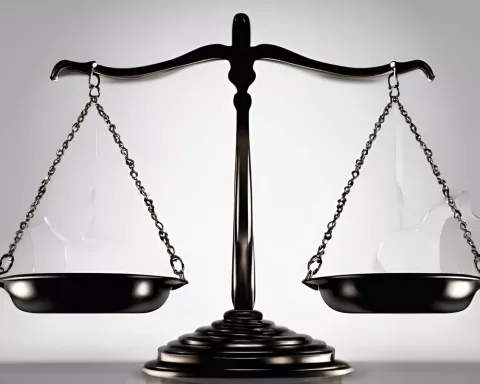The Department of Water and Sanitation has withdrawn proposed regulations for the recreational use of government waterworks and state-owned land following public consultation and feedback. The regulations, originally published in March 2023, aimed to manage the use of these areas. However, concerns were raised during the consultation process, and the department has since decided to retract the draft regulations. The withdrawal highlights the importance of public involvement in policymaking and the need to balance environmental conservation with public access when managing state-owned lands and resources.
Responding to Public Feedback
In a recent turn of events, the Department of Water and Sanitation (DWS) has decided to withdraw its proposed regulations pertaining to access and usage of government waterworks and adjacent state-owned land for recreational purposes. Originally published on 24 March 2023 under the National Water Act of 1998 (Act No. 36 of 1998), the aim of these regulations was to manage the use of these areas for public recreation. However, after taking into account public feedback received during consultations and written submissions, the DWS opted to retract the draft regulations.
The decision to withdraw was primarily driven by the various concerns voiced by the general public during the consultation process. Public opinion is crucial in shaping policies and regulations that directly impact the lives of citizens. In this instance, the public’s input helped identify potential issues in the initially proposed regulations, which might have required modifications or revisions.
This move is a testament to the significance of public participation in the policymaking process. By allowing citizens to express their concerns, the government can ensure that the resulting regulations are more likely to be well-received and, ultimately, more effective. Additionally, this decision helps reinforce the relationship between government institutions and the public, promoting trust and enhancing transparency.
Reviewing and Revising Regulations
In light of the withdrawal, the DWS will undertake a comprehensive review of the retracted regulations and issue a new set of proposals after making the necessary revisions. The review process might involve additional consultation with various stakeholders such as environmentalists, recreational users, and other relevant parties. This will ensure that the new regulations effectively address the public’s concerns and provide a feasible solution for the recreational use of government waterworks and adjacent state-owned land.
The decision to withdraw the proposed regulations opens up a valuable opportunity to examine the potential consequences of such regulations regarding recreational use of government waterworks and neighboring state-owned lands. These areas are often crucial resources for local communities, offering opportunities for leisure, sports, and relaxation. Therefore, any regulations governing their use must delicately balance environmental preservation with public accessibility.
Furthermore, these areas might hold environmental and historical importance, which must be factored in when developing regulations. By incorporating the perspectives of diverse stakeholders, the government can ensure that the revised regulations are sensitive to the needs of the environment, the public, and the historical contexts of these sites.
The Importance of Public Involvement
The retraction of the proposed regulations highlights the value of public involvement in shaping policies. By engaging in meaningful dialogue with citizens, the government can gain a deeper understanding of the needs and concerns of the people and develop regulations that best serve their interests. This case also underscores the importance of striking a balance between environmental conservation and public access when managing state-owned lands and resources.
In conclusion, the Department of Water and Sanitation’s decision to withdraw the proposed regulations on the recreational use of government waterworks and neighboring state-owned land showcases the government’s commitment to transparency, public participation, and responsible policymaking. As the DWS works on revising these regulations, it is crucial to maintain open communication with the public and consider the various perspectives of stakeholders to create policies that effectively address the diverse concerns related to the use of these valuable resources.
For more information on this decision, individuals can contact Wisane Mavasa, the spokesperson for the Department of Water and Sanitation, at 060 561 8935.
1. What were the proposed regulations for recreational use of government waterworks and state-owned land?
The proposed regulations were initially published in March 2023 under the National Water Act of 1998 (Act No. 36 of 1998) and aimed to manage the use of government waterworks and adjacent state-owned land for public recreation.
2. Why did the Department of Water and Sanitation withdraw the proposed regulations?
The department withdrew the proposed regulations following public consultation and feedback. Concerns were raised during the consultation process, which led to the decision to retract the draft regulations.
3. What is the significance of public feedback in policymaking?
Public feedback is crucial in shaping policies and regulations that directly impact the lives of citizens. In this instance, the public’s input helped identify potential issues in the initially proposed regulations, which might have required modifications or revisions.
4. What is the government’s responsibility when managing state-owned lands and resources?
The government’s responsibility is to balance environmental conservation with public access when managing state-owned lands and resources.
5. What is the process for reviewing and revising the regulations?
The DWS will undertake a comprehensive review of the retracted regulations and issue a new set of proposals after making the necessary revisions. The review process might involve additional consultation with various stakeholders such as environmentalists, recreational users, and other relevant parties.
6. What factors need to be considered when developing regulations for recreational use of government waterworks and adjacent state-owned land?
Regulations governing the use of these areas must delicately balance environmental preservation with public accessibility. Additionally, these areas might hold environmental and historical importance, which must be factored in when developing regulations.
7. How can the government ensure that the revised regulations are sensitive to the needs of the environment, the public, and the historical contexts of these sites?
By incorporating the perspectives of diverse stakeholders, the government can ensure that the revised regulations are sensitive to the needs of the environment, the public, and the historical contexts of these sites.
8. Who can individuals contact for more information on this decision?
Individuals can contact Wisane Mavasa, the spokesperson for the Department of Water and Sanitation, at 060 561 8935 for more information on this decision.








